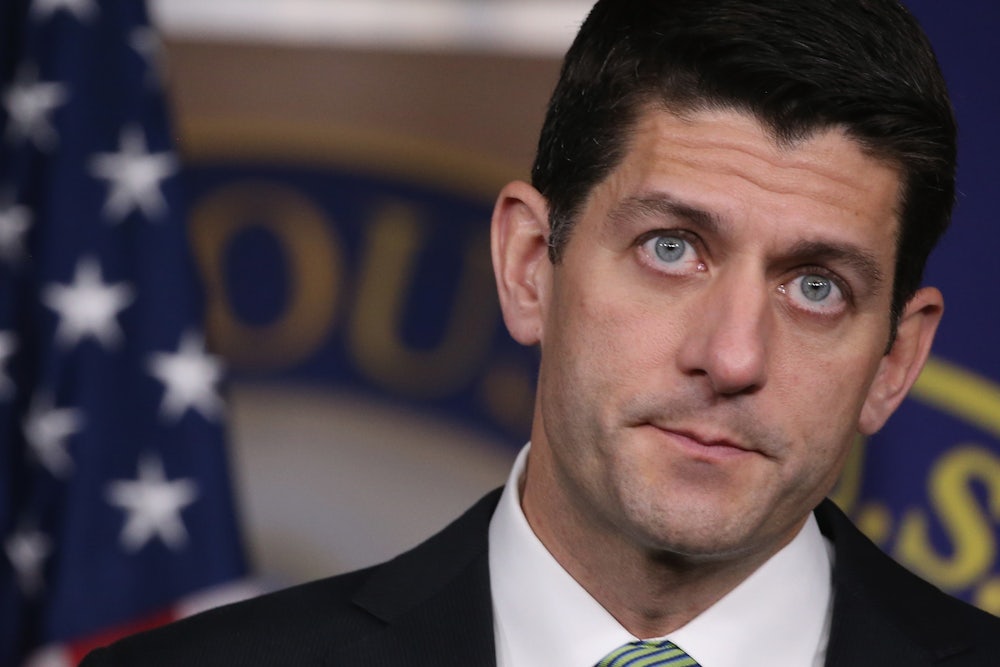Back in March, Ross Douthat criticized Ryan for failing to take a bold stand against Trump. He wrote, “Ryan’s answer is first, change nothing; second, do nothing.” Now Ryan has done something, and it is something quite big, raising the possibility that the Republican Party will be badly divided in the fall. But the first part of Douthat’s equation remains a mystery: Does Ryan, the high priest of Republican orthodoxy, want to change anything about the GOP? And if so, what?
My initial take on Ryan’s refusal to endorse Trump was that it could be read as both a rejection of Trump’s brand of angry white identity politics and an attempt to safeguard the GOP elite’s pro-corporate, anti-welfare platform. Byron York, speaking to a Ryan confidante, reports that it is definitively the former:
“We’re talking about identity politics—that’s what he was referencing,” said the person familiar with Ryan’s thinking. “Identity politics is what Paul was getting at. He spoke out against the Muslim ban, against allowing a culture of violence at some of these campaign events, against the Duke comments. He’s just saying our party deserves a leader who is committed to unifying, not dividing, our party and our country. We’ve always said we would disagree on policy.”
If this is the case, then it will be interesting to see if Ryan takes up Trump’s counter-offer to “come to an agreement about what is best for the American people,” if he is willing to compromise the GOP’s positions on entitlements, trade, and even taxes. By exposing the Republican electorate’s distaste for Ryan’s strain of Ayn Rand-ian conservatism, Trump poses an immense threat to the party—but also, perhaps, an opportunity to change course.
